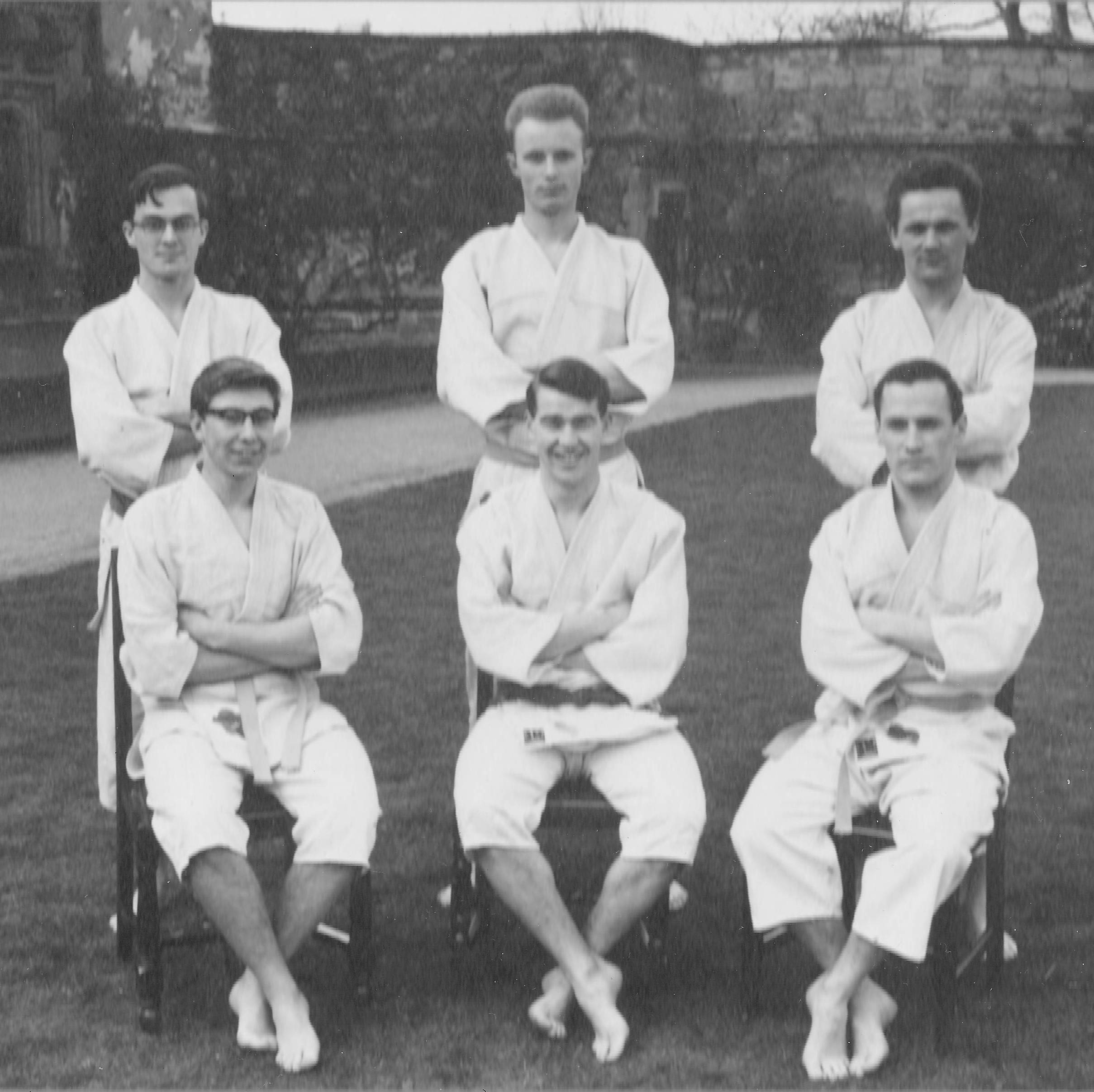Curse Tablet
who believe
the Trinity

My Testimony
I took my B.A. degree in physics at Reed College in Portland, Ore. At that time, Reed was widely known for the liberal or even radical nature of its student body, although there were many well-meaning students there and most did not have the bitterly anti-American and anti-Christian sentiment that prevails on many campuses today. However, there were very few Christians at Reed; perhaps four or five out of a student body of 600. While at Reed I became interested in Zen Buddhism through my study of the martial arts, and during my junior and senior years I was the college instructor in Judo. I also considered myself an agnostic.
After Reed, I went to Oxford University in England, where after two years I received degrees in mathematics (BA and MA). The first friends I fell in with at Oxford turned out to be Christians, and I started attending church, mostly at the Methodist church built on the vacant lot where John Wesley used to preach because he was denied permission to preach in the churches. British Methodism at that time (early 1960s) was generally more conservative that American Methodism. The preacher was very eloquent and generally Bible-centered, but not what we would call evangelistic.
As was the custom for most Americans studying at Oxford in those days, I spent the summer between my two years there traveling (mostly hitch-hiking) around Europe. One day while hitch-hiking in Germany an Opel station wagon picked me up. It soon became apparent to the couple driving the car that my hitch-hiking German indicated I was not German, so they asked, in English, if I was an American. I then learned that they too were Americans, serving as missionaries to the German people. I asked what denomination they represented; they replied "We do not represent a denomination: we represent the Lord Jesus Christ." I liked that answer, because I had viewed Christians as all divided up among various denominations.
Then they asked me if I was a Christian. "No," I replied, "I'm an agnostic." I did not believe it was possible for anyone to know for sure that God existed. The wife (the husband was driving) then opened her Bible to 1 John and read to me those passages that said that we could know about the truth of God's existence, and could have a personal experience of Him. (1 John 4:13, "This is how we know that we dwell in Him, and He in us, because He has given us of His Spirit." 1 John 5:13, "I have written these things" . . .so that you may know that you have eternal life." 1 John 5:20, "We know also that the Son of God has come. He has given us an understanding, that we may know Him who is true.") Even though I had attended church as a child and once took it upon myself to read the Bible through, I didn't realize that the Bible taught this. When asked if I would like to know whether God exists, I replied that I would, and I promised the missionaries that when I got to the youth hostel that night I would pray that if God exists, I wanted to know it. I did just that.
That was probably about September. In November the Church of England conducted a "Mission to the University," or what we would call an evangelistic campaign. Those conducting it were from the so-called "low" or evangelical part of the Church of England. The evangelists were Dick Lucas and Jim Packer (Packer has since then acquired a considerable reputation as a writer and scholar.) They made the Gospel plain. I turned to my friend with whom I had been going to the Wesley Memorial Church and asked: "Why haven't I heard that before?" He replied that it was simple stuff and they didn't repeat it all the time. How they missed it! So finally understanding the Gospel, I made a commitment to Christ and found out that spiritual things, even the presence of God, can be made real to us in a way we absolutely could not expect.
I might mention that during my undergraduate days I had done quite a lot of reading in Freud and other psychoanalysts, and so I was someone who would be very suspicious of fleeting emotions or of psychological states that people can work themselves into. Perhaps it was good that I had this background, because when reality came I knew it was not from me, but from God. What surprised me was that this religion was real. I didn't have to walk around in doubt about it after God kept His promise: "This is how we know that we dwell in Him, and He in us, because He has given us of His Spirit." "The Spirit Himself testifies with our spirit that we are the children of God" (Romans 8:16). In a sense I was right when I was an agnostic: man cannot by himself work up an experience and so claim that he has found the reality of God, as claimed by New Age and various other self-realization religions. But surely God, if He exists, can make His existence known to His creatures, as He promises in His Word, when we come to Him on His terms of faith in Christ as the One who died for our sins. God's reality is promised to those who accept the salvation offered in Christ. He offers no other way to find Him.
Rodger C. Young
St. Louis, Missouri